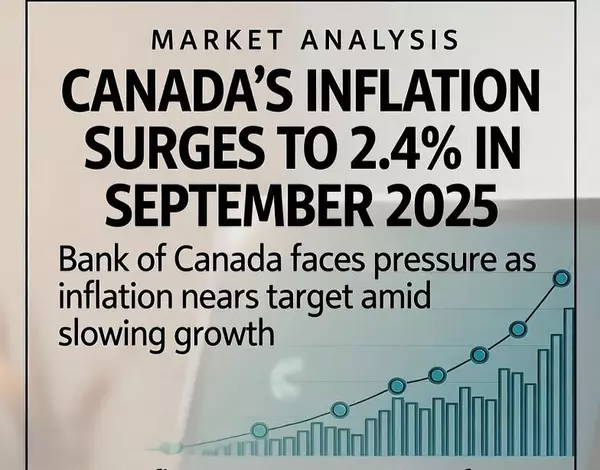Understanding Estate Sales in Calgary, AB: Opportunities for Sellers and Buyers

Estate sales are a significant part of the real estate landscape in Calgary, Alberta, often stemming from life events like the loss of a family member or asset liquidation needs. For executors, heirs, and buyers in the Calgary market, grasping estate sales can reveal key opportunities. As an experie
Read MoreThe Top 10 Reasons to Move to Cochrane, Alberta: A Community That Has It All

Cochrane, Alberta is an up-and-coming gem located just 18 kilometers west of Calgary. With its picturesque landscapes, friendly community, and vibrant local culture, it’s no wonder more and more people are considering making Cochrane their home. If you’re contemplating a move, here are the top 10 re
Read MoreIs Pent-Up Demand Set to Surge in Canada's Housing Market Following Rate Cuts?

In the wake of the Bank of Canada's recent decision to lower interest rates by 25 basis points to 2.25%, discussions are heating up about whether this move will finally release a wave of pent-up demand in the Canadian housing market, especially in major hubs like Toronto. Mortgage experts and media
Read MoreBank of Canada Rate Cuts: Opportunities for Residential Buyers in Central Alberta and Calgary

As a real estate professional serving Central Alberta and Calgary, I closely monitor economic developments that affect our local housing markets. The Bank of Canada's recent decision to cut its policy rate by 25 basis points to 2.25% on October 29, 2025, marks the second consecutive reduction and si
Read More-

In the ever-evolving landscape of the Canadian economy, recent inflation figures have sparked significant discussion among economists, policymakers, and real estate professionals. Key Inflation Data Highlights The headline inflation rate for September 2025 increased to 2.4%, driven primarily by ris
Read More Understanding the 7-Year Cycle: Insights for Calgary Real Estate Buyers and Investors

As a dedicated Realtor serving Calgary, Alberta, and the surrounding areas, I've seen firsthand how patterns in economics and nature can influence the real estate market. Whether you're a first-time homebuyer, a seasoned investor, or looking to sell your property in Calgary, understanding these cycl
Read MoreBank of Canada Rate Cuts: Opportunities for Real Estate Buyers and Sellers in 2025

In a move that signals continued efforts to support economic growth amid moderating inflation, the Bank of Canada has implemented several interest rate cuts throughout 2025. These adjustments to the policy interest rate are poised to influence borrowing costs, including mortgages, and create favorab
Read More-

Are you wondering why Calgary's real estate market feels different lately? Prices are dipping, but not everywhere – and the reasons might surprise you. In this August 2025 update, we'll dive into the data revealing how increased supply in apartments and row homes is driving the biggest shifts. If yo
Read More Is It Safe to Buy a Home When the Market Is High?

The housing market is a rollercoaster—sometimes it’s a buyer’s paradise with low prices and plenty of options, and other times, like now, it feels like sellers are holding all the cards. If you’re house-hunting in March 2025 and staring down sky-high prices, you might be wondering: "Is it safe to bu
Read MoreDebunking Common Myths About Buying and Selling a Home in Alberta

As you prepare for your journey in the Alberta real estate market, I wanted to take a moment to address some common myths that many buyers and sellers in our province believe. These misconceptions can often lead to confusion or misguided decisions, so I’m here to help clear things up and make sure y
Read MoreWhat is an FHSA and How It Can Benefit You

First Home Savings Account (FHSA) is a relatively new savings account introduced to help first-time homebuyers save for a down payment and other related costs in a tax-advantaged way. It combines some of the best features of both Registered Retirement Savings Plans (RRSPs) and Tax-Free Savings Accou
Read MoreWhy Mortgage Pre-Approval is Essential for Your Home Search

While it may seem like just another formality, mortgage pre-approval plays a critical role in ensuring a smooth and successful home-buying experience. Why is Mortgage Pre-Approval So Important? Know Your Budget: Pre-approval helps you understand exactly how much you can afford to borrow, giving you
Read MoreSpotlight on Cochrane, Alberta: A Growing Gem in the Canadian Real Estate Market

Nestled at the foothills of the Canadian Rockies, just a short drive from Calgary, Cochrane, Alberta is quickly becoming one of the most sought-after communities for homebuyers and investors alike. With its stunning natural beauty, charming small-town atmosphere, and growing amenities, Cochrane offe
Read MoreIs It the Right Time to Buy Real Estate in Calgary, AB? A 2024 Market Analysis

As we move through 2024, potential home buyers are asking themselves an important question: Is now the right time to invest in real estate in Calgary, Alberta? As one of Canada’s most vibrant cities, Calgary is known for its stunning landscapes, strong economy, and diverse culture. In this blog post
Read MoreUnderstanding Months of Supply in Real Estate: What It Means for Buyers and Sellers

When navigating the real estate market, you may come across the term "months of supply." But what does this phrase really mean, and how does it impact your buying or selling decisions? In this blog post, we’ll break down the concept of months of supply, why it matters, and how it can influence marke
Read MoreWhat Do Realtors Do? A Comprehensive Guide to Real Estate Professionals

When it comes to buying or selling a home, many people turn to real estate professionals for assistance. But what exactly do realtors do, and how can they help you navigate the complex world of real estate? In this blog post, we’ll explore the roles and responsibilities of realtors, discussing how t
Read MoreThe Ultimate First-Time Home Buyers Guide: Your Path to Homeownership

Buying your first home is an exciting and significant milestone, but it can also be a daunting process. With so many options, financial considerations, and steps involved, it’s essential to be well-prepared. This first-time home buyers guide will walk you through everything you need to know to make
Read MoreAre You Ready to Take the Plunge into Homeownership in Calgary, Alberta?

The Benefits of Homeownership in Calgary, Alberta: Why Now is the Time to Take the Plunge Purchasing a home is a significant financial decision, and as a first-time homebuyer, you may feel overwhelmed by the process. However, despite the challenges, the benefits of homeownership are worth the effort
Read More
Categories
Recent Posts










